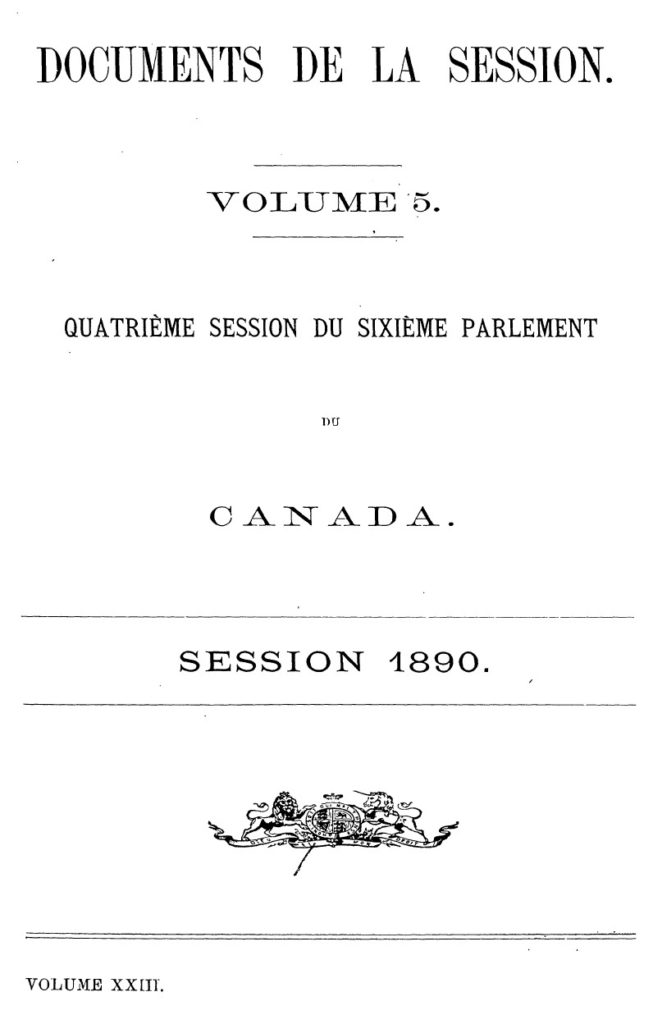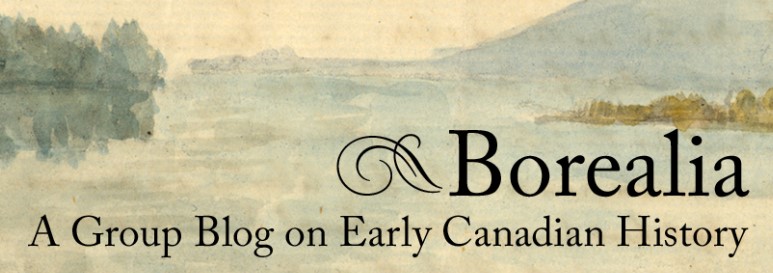Following last week’s post on U.S. history online, this one also highlights the treasures of the digital age. What are your favorite places to pause for history online? Share in the comment section below.
The number of books, chapters, and articles on the digital Atlas historique is impressive. The site covers the organization of life and institutions in the Province of Quebec, including sections on English speakers and First Nations. But even this broad description fails to do justice to the varied pieces readers will find here, for also included are French populations’ peregrinations and experiences all across North America—from Acadia to the Klondike, from Ontario to New England to the southwestern United States. Many of the books and chapters first appeared as edited collections published by the Presses de l’Université Laval, as is the case with the invaluable La francophonie nord-américaine (2012). It is to their credit that PUL and the Centre interuniversitaire d’études québécoises have digitized these materials in light of the prohibitive cost of printed academic works.
Finally, I cannot help but plug the brilliant J. I. Little’s piece on my home region, the Eastern Townships of Quebec.

For history teachers, the struggle to find primary and secondary sources that work well in class discussions, or as supporting material for lectures, is real and on-going. Professors Thomas Peace and Sean Kheraj have assembled this open-source collection that amplifies minority voices and highlights all that is exciting in Canadian history. There is ample room to question how the editors organized the book, or where they placed the greatest emphasis—as with all textbooks and readers. But as a teaching tool and a solid work of scholarship, there is no denying this reader’s value. It may end up on one of my syllabi in the near future. I add, en passant, that it is very accessible and would prove helpful not only to teachers and students, but to a general public seeking work of greater credibility than Wikipedia articles.
If this database will be of greater interest to researchers than casual readers, it at least merits mention by virtue of its scope and the amount of work that went into its making. The collection covers the exhaustive legislative record of five distinct colonies prior to Confederation. Read military pension legislation introduced during the War of 1812; acts to provide relief to poor British and Irish immigrants; or the final version of the Rebellions Losses Bill, whose ratification led to the burning of the Parliament building in Montreal. Much of the content is actually quite pertinent to social history.
I would also recommend the digitized Hansard (for either the post-1867 or post-1901 periods) with the great caveat that the information retrieved in a keyword search can be overwhelming.

The success of the Confederation project (1864-1867) was considerably aided by the threat of American military power, pressing economic concerns, and the leverage and influence of the British North American provinces’ leading statesmen. But it was not a foregone conclusion, least of all as the federation of four provinces that it eventually became. The debates on this interactive website reveal contemporary concerns, reservations, and the outright opposition to the push for a new constitution.
As the home page suggests, there are multiple ways of viewing the data collected by researchers. The map is nifty for locating clusters of support or opposition, and the free e-book provides valuable context. From clever quips (“You, sir, and I were sent here to make laws, not legislatures”) to perennial complaints (“We are the most heavily taxed people”), there is a lot to discover here.
Dictionary of Canadian Biography
Okay, enough of this business about nitty-gritty primary-source research. The DCB is more than a dry reference source: many portrayals of famous Canadian (or pre-Canadian, or Canadian-ish) individuals are readable and actually quite lively. They offer a sense of the personal struggles and achievements that made this country—or, in some cases, absolutely did not. I appreciate this resource partly because grand, eulogizing national narratives fade to the background, leaving in their wake more nuanced stories about identity, ideology, and interest.
That being said, those looking for the iconic moments in Canadian history, or a general overview, may find satisfaction in Historica’s Heritage Minutes and CBC’s Story of Us. If the overt nationalism is dubious, these audiovisual resources at least highlight what we should know intuitively—that Canadian history, however defined, is not boring.
Back to the DCB: Those looking for casual reading, who might not know where to start, may consider clicking on the “Biography of the Day” or checking out the newly posted biographies. Perhaps we will find Prosper Bender’s life story among these in some not-too-distant future.
Bonus!
Recommend Podcast: Witness to Yesterday
Full disclosure: I am only beginning to immerse myself in these conversations. Researchers are invited to offer the latest on landmark moments in Canadian history (or pre-Canadian history) and the breadth of subjects is quite impressive—from George Washington to women’s suffrage, Indian hospitals to Joe Clark.

Recommended Blog: Borealia
I have to declare a slight conflict of interest here, since several of my pieces have appeared on the website. (What online platform hasn’t had to suffer through my submissions!) But many posts are far more compelling and captivating than mine and much of what I wrote concerning The Junto last week applies here as well. There is a great deal of content on post-Contact North America to 1867, including (again) cutting-edge research and fascinating series, not least a recent one on the history of Acadia. My personal favorite is this post by David Wilson, which would work really well in a historical methods course.
Honorable mentions go to Unwritten Histories and Beyond Borders, for which I must also declare a conflict of interest. The first is the brainchild of Andrea Eidinger. Although it is currently on hiatus, it remains a worthwhile stop for academic article reviews, recent book announcements, original research, and guides to digital resources. The second comes from the Wilson Institute for Canadian History and provides a much-needed glimpse into transnational phenomena, as the title suggests.
I have been researching my French Canadian roots for over 40 years starting with my grandfather Wilfred Rosaire Rioux, Lisbon Falls, Maine.
Along the way, I was intrigued by many aspects in the development of New France including, in particular, the intervention of the Kirk brothers in the story of Quebec.
Specifically, I am interested in the names of the families living in Quebec before the intervention, the names of the families that remained, the names of those families that returned to Europe because of their intervention and the names of the families that returned to Quebec to start their lives again.
If you have some of this information, can you share it with me.
Also, could you please share the best online resources in Canada for requests along these lines.
Thank you for writing. Although familiar with the Kirkes’ takeover, I know little of the laborers and families that were displaced or that remained. The team behind BALSAC, a genealogical database with immense demographic data stretching back to the early seventeenth century, would likely be able to help with this inquiry. The database is hosted by the Université du Québec à Chicoutimi (UQAC). I believe that FamilySearch and Ancestry.com both have the seventeenth-century records of the parish of Notre-Dame in Quebec City, which at that time was the only parish in the colony. Those records could help you trace elements of continuity or disruption. I imagine there are secondary works (historical monographs) on New France that mention how many people left, but likely without the level of precision that you are seeking.